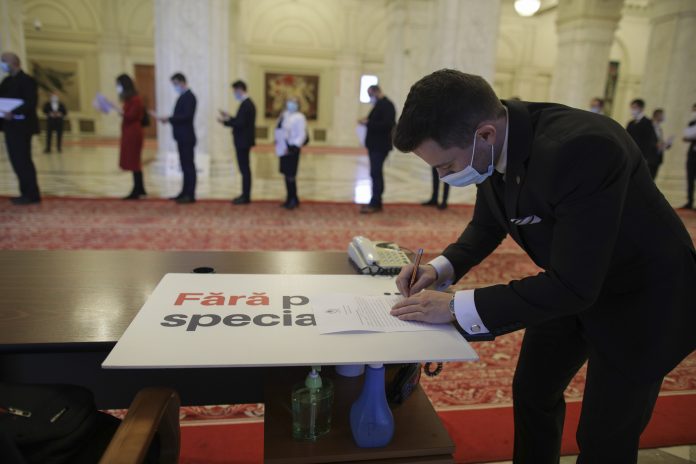Romanian President Klaus Iohannis on Wednesday signed into a law a bill abolishing special pensions for former lawmakers.
A week ago, in a rare show of cross-party unity, lawmakers voted to scrap the pensions with immediate effect, in what legislators said was an act of social responsibility.
The bill which was submitted by the opposition Social Democratic Party passed unanimously with 357 lawmakers in favor.
Lawmakers from the party that represents the interests of ethnic Hungarians, a junior party in the ruling coalition, however, abstained.
“It’s an important moment for Romania, for this generation,” Aldred Simonis of the Social Democratic Party said after the vote.
Ludovic Orban, chairman of the ruling Liberal Party which has constantly opposed special pensions for lawmakers also praised the development, saying: “Nobody should have special privileges.”
Dan Barna, who heads the Save Romanian Union, which is in the governing coalition,said Romania’s ageing population meant that in the future it would be hard to find funds for the special pensions.
Romania pays some 37 million lei, 7.6 million euros a year about to 870 former lawmakers who receive special pensions. After the president’s signature, those lawmakers will no longer be eligible for special pensions.
The topic has stirred debate in recent years, about who gets them and why. Lawmakers are generally not deemed worthy of the privilege.
Most EU countries have special pensions, alongside their general pension systems. They are generally granted to beneficiaries with a special status, such as state employees of all branches of government, security and defense forces, including some civil professions, and people that work under difficult conditions.
Hallmarks of special pensions usually include a lower retirement age, contributory periods counted more favorably, or higher benefits.
However, across Europe, such preferential schemes are being phased out, especially in the case of security and defense workers and state employees.
Special pensions for state employees and employees of state-owned enterprises are more controversial in terms of social equity and administrative efficiency.

















